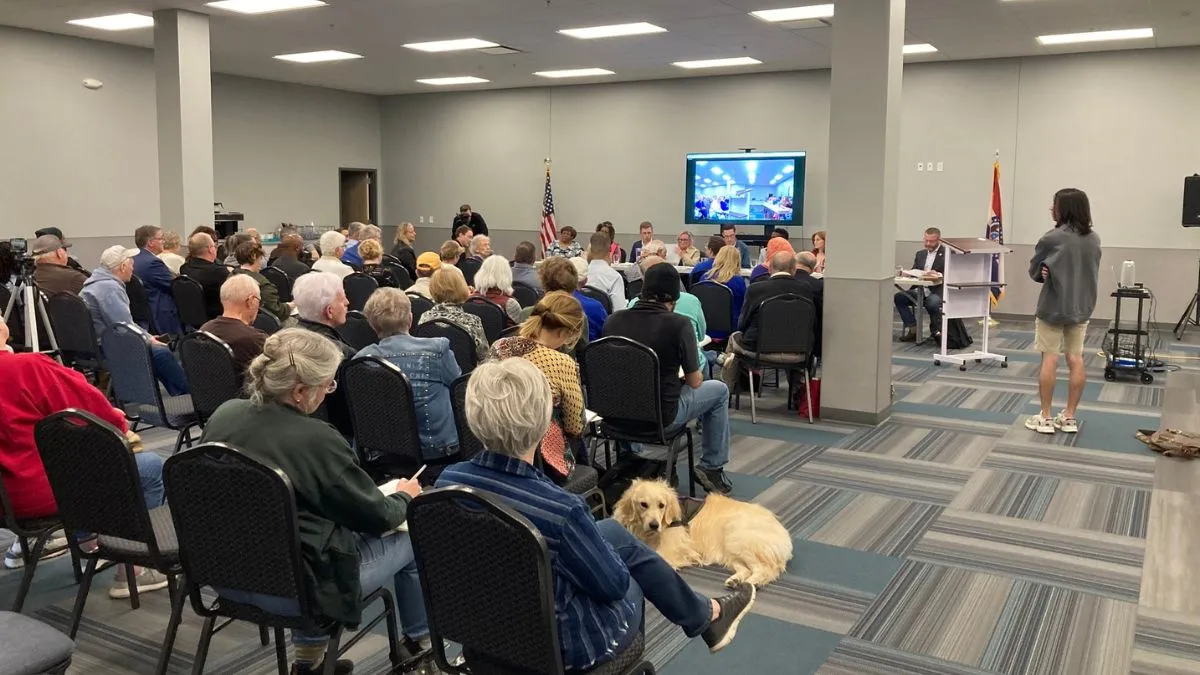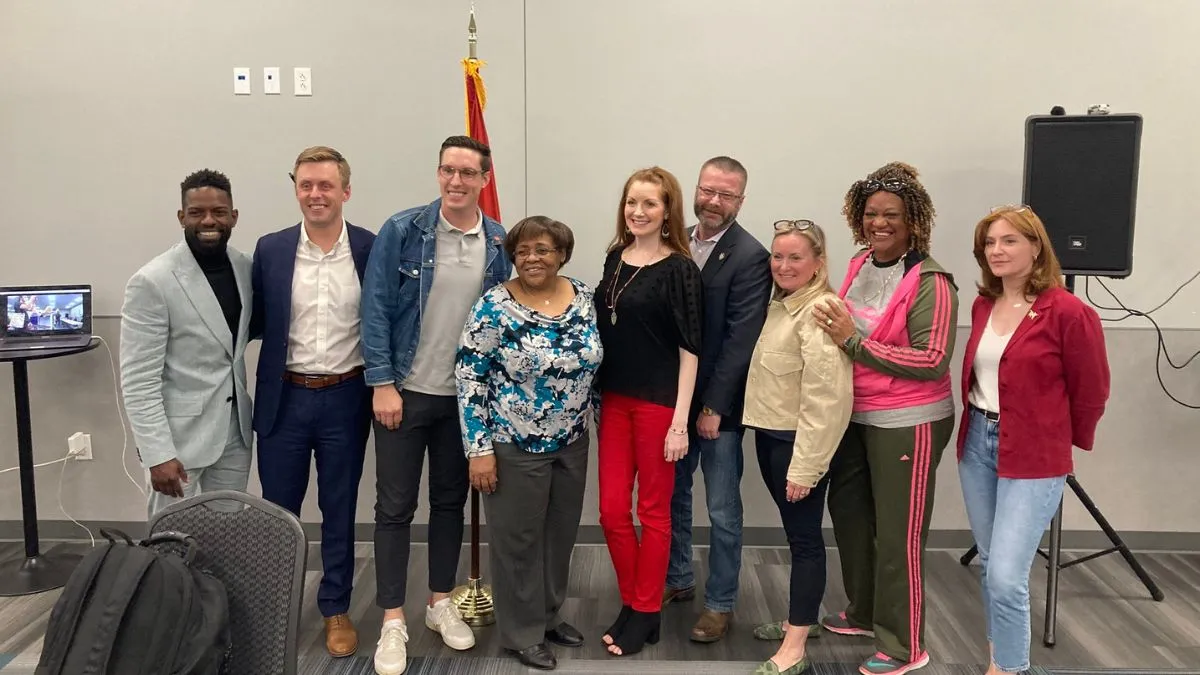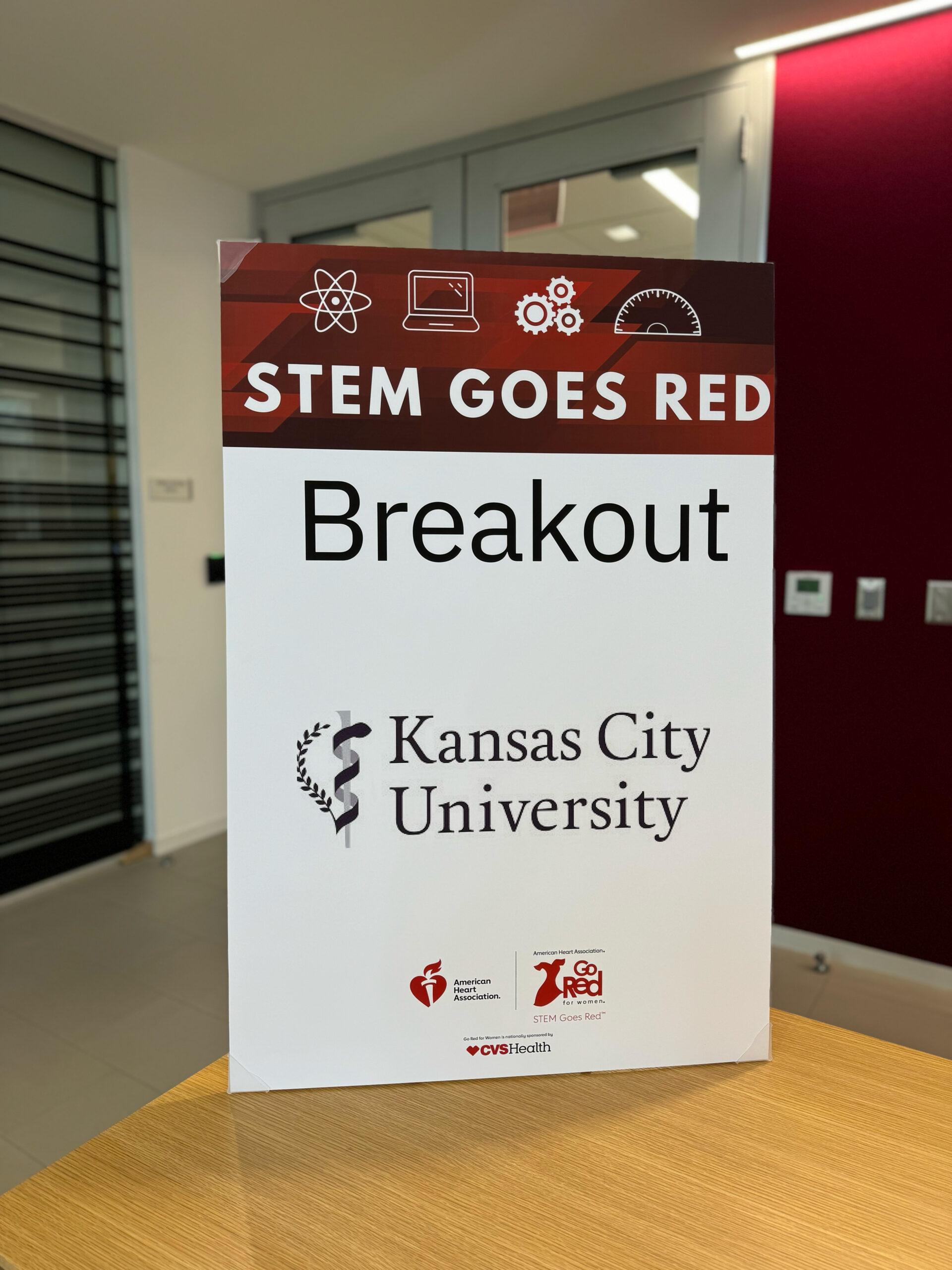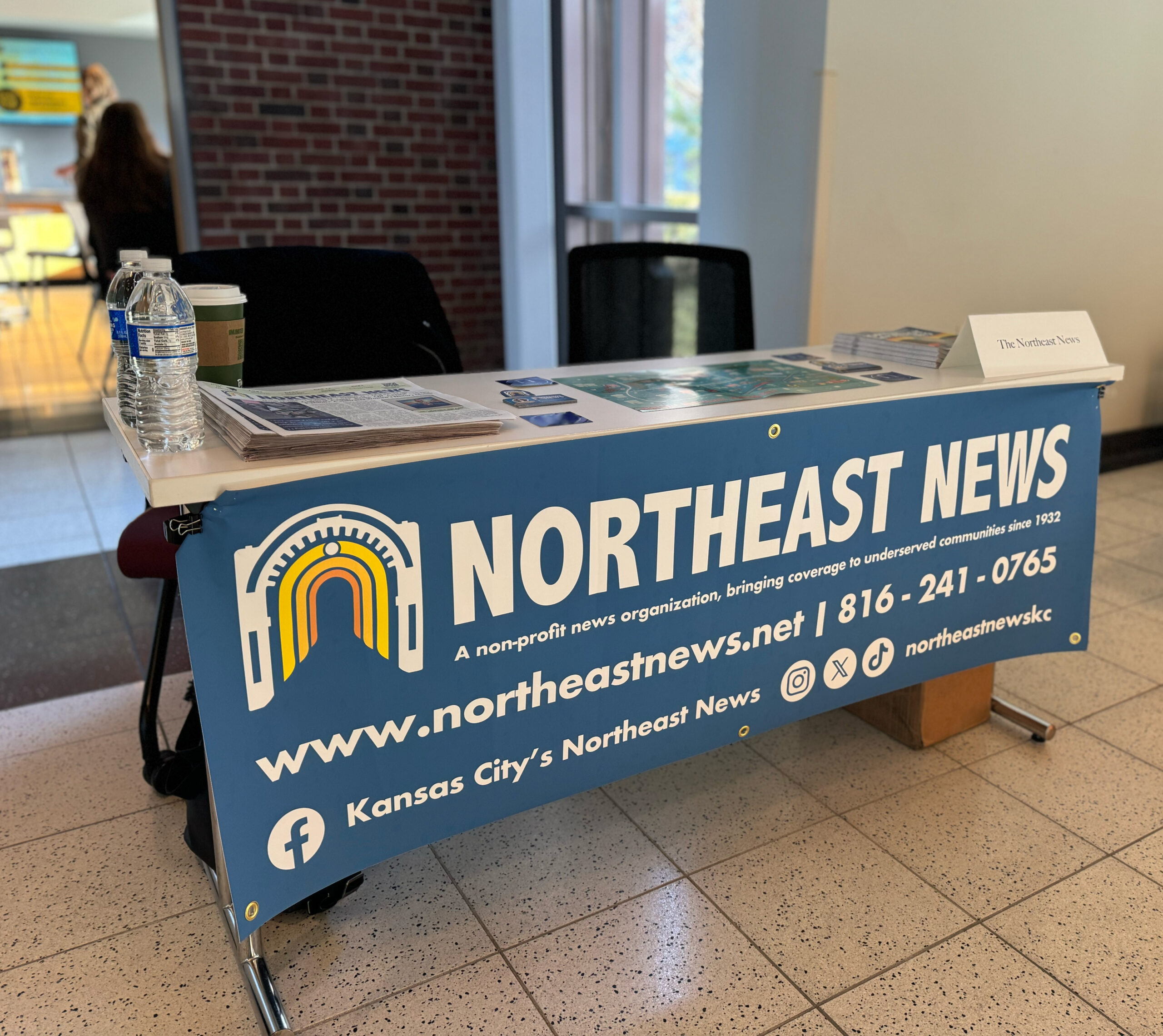In past years, Kansas City has had five months to review its charter. This year, the commission only has five weeks.

By Josh Merchant
Without much fanfare, Kansas City’s nine-member Charter Review Commission has been discussing changes that could make it harder to recall officials, challenge City Council votes and propose citizen initiatives.
Before May 18, the commission must decide which measures to recommend to the Kansas City Council for a vote. A radical change in the governance of the Department of Parks and Recreation was on the table, but has been pulled by the mayor’s office.
Kansas City reviews its charter every 10 years. The last time it happened in 2013, the commission took five months to review the proposal. This year, the process has been condensed to just over a month.
At a packed listening session in the Northland on May 1, critics including Clay County Presiding Commissioner Jerry Nolte criticized the shortened timeline and called for a more transparent and public-facing process. More than 170 members of the public attended in person or over Zoom.
Public comments included support and opposition for a “ranked-choice” style ballot. And several parks officials, including former parks and recreation commissioner Anita Gorman, spoke against a proposal to move oversight of the parks department from a board appointed by the mayor to the city manager’s office. The mayor’s office dropped that idea the next day.
So what is a charter review and what are the changes under consideration? And why is the timeline for this review so much shorter than in previous years?
How does a charter review work?
Members of charter review commissions are appointed by the mayor. The commission includes one person from each City Council district in addition to three who represent the entire city.
Here are the nine commissioners for this charter review, appointed by Mayor Quinton Lucas on April 11:
- Eric Rose, secretary-treasurer of the International Association of Fire Fighters Local 42, represents the 1st District.
- Jenny Johnston, president of the Northland Regional Chamber of Commerce, represents the 2nd District.
- Karen Slaughter, a restorative justice facilitator at the Center for Conflict Resolution, represents the 3rd District.
- Wilson Vance, organizing director for KC Tenants, represents the 4th District.
- Linda Brown, the president of Blue Hills Neighborhood Association, represents the 5th District.
- Michael McGee, an attorney, represents the 6th District.
- Margaret Jones, a community volunteer, represents the city at large.
- Adam Miller, the head of diversity, equity and inclusion at American Century Investments and the founder of Bespoke Consulting, represents the city at large.
- Jack Steadman, a director and team lead of relationship management at C2FO, represents the city at large.
Slaughter and Steadman are the two co-chairs of the commission.
Lucas may propose changes for the commission to consider, but the decision to recommend changes is ultimately up to the commission.

Proposed changes to the democratic process
Now that the change to the parks board has been rescinded, all of the proposals under review are related to elections, recalls and initiative petitions.
The first proposal would move municipal elections from an April primary and June general election to an August primary and November general election.
Lucas initially recommended switching to even-numbered years, which tend to have higher voter turnout. However, those elections, which include state and federal candidates and issues, also have long ballots.
After listening to warnings from election board officials that many voters won’t make it far enough down the ballot to weigh in on the city questions, the commission is no longer considering elections in even-numbered years.
The commission is still considering ranked-choice voting, which a local group, Better Ballot KC, is advocating for. In a ranked-choice voting system, voters rank several candidates, instead of selecting only one, and the winner is picked using a simulated runoff.
Also under consideration is an “approval voting” system, in which candidates who receive a high enough portion of the vote in a primary would automatically win the general election. The commission has not set a number yet, but members are considering a 50% threshold to cancel the runoff.
Changes to petition requirements
Another proposed change is an increased signature requirement for initiative petitions, referendums and recalls to be placed on the ballot.
“Currently, each of the thresholds for those are determined based on the percentage of voters who voted in the last mayoral election,” Johnston told The Beacon. “What the mayor is proposing is that we change that to just registered voters in general.”
In 2019, about 67,000 voters participated in the mayoral election. By comparison, there were about 326,000 registered voters. Because Lucas is facing only nominal opposition, the turnout for the 2023 mayoral election is expected to be lower.
A benefit to the proposed change is that the signature requirement would not change significantly between unusually high- or low-turnout elections. However, about six times as many signatures would be required, making it significantly more difficult to get recalls, referendums or initiatives on the ballot.
At the listening session, several people spoke against this change, including Jaz Hays, a Northland resident. Hays pointed out that 20% of registered voters, the proposed requirement, is higher than voter turnout in typical municipal elections. More people would need to sign a recall petition than the number who voted in the election in the first place.
After feedback from the listening session, Johnston said the commission has agreed to separate recalls from initiative petitions and referendums. A recent initiative petition established the city’s Healthy Homes program.
“It should still be attainable for a citizen to try to get something on the ballot,” Johnston said. “We do feel like, if you were elected by the people, it should be hard for you to be recalled. We’re still determining what that threshold is.”
For initiative petitions, the commission is considering a requirement of 5% of voters who turned out in the last mayoral election — roughly 3,350, using 2019’s numbers — but adding a minimum threshold. This threshold is still up for debate, but it could be around 4,000 voters.
What’s the timeline for this year’s charter review?
Under a timeline set by the mayor’s office, the commission will approve or reject proposed changes to the city’s charter in two weeks. Every change that members vote to approve will be sent as a separate proposal to be approved by the City Council.
The mayor wants the City Council to approve the changes at its May 25 meeting so they can be placed on the ballot for the August 2023 election. Each proposed change will appear separately on the ballot.
“The mayor hasn’t explicitly told any of us why he wants this to be on the August ballot, or why he wants this council to vote on it,” Johnston said. “So that’s just speculation on our end. But that is the timeline that we were given.”
“The mayor currently does not favor forcing a new council — and potentially a new mayor — to be in the position of placing on the ballot and defending an extension of their own current terms,” a spokesperson for Lucas said in a statement.
If the changes are to be placed on the November 2023 ballot, the deadline for approval would be in mid-August. The current City Council could vote on the proposed changes before the seating of the new council members on Aug. 1. After that, the newly elected council members would get to decide.
That possibility has some commissioners concerned that City Council members who will be elected in June would be voting on a five-month extension of their own terms and modifications to their own recall process.
Several people complained at the May 1 listening session about a lack of transparency and the tight turnaround to approve the proposed changes.
“There are a lot of things that I see here that I have a great deal of apprehension about, and I’m not going to enumerate those right now, but I will focus on one thing and that is the haste that’s being exercised, trying to put this thing together and put it before essentially a lame-duck City Council,” said Nolte, the Clay County presiding commissioner.
The commission may vote to extend the timeline next week
At a meeting of the Charter Review Commission on May 2, commission members reviewed public comment from the listening session and discussed lengthening the timeline to mid-August. Although the mayor set the mid-May timeline, the commission may vote to extend it without his approval.
“I don’t know who brought it up yesterday but the city posted (notification for) that public listening session online six hours beforehand,” Vance said. “That’s a real problem to me, and I would feel deep hesitation signing my name off on a process that I believe has lacked the proper democratic process.”
She said the first listening session had already resulted in significant changes to the proposals on the table and argued in favor of increasing the number of future listening sessions.
But a handful of commissioners, including Steadman, Rose and Miller, were hesitant about extending the timeline.
The commission decided to review the timeline more closely at its next meeting on May 9, based on testimony from the second listening session, which will happen on May 8.
Opportunities for civic engagement
The commission discussed planning additional listening sessions, but none has been confirmed yet.
One possibility is that the May 15 commission meeting could become a listening session, and there would be an additional commission meeting planned for May 16.
As of now, one more listening session is scheduled for May 8 at 6 p.m. at Southeast Community Center, 4201 E. 63rd St.
Regular commission meetings are held at 5 p.m. in the 10th floor committee room of Kansas City Hall. There are two left before the May deadline: one on May 9 and the final meeting on May 15.
Josh Merchant is The Kansas City Beacon’s local government reporter. This article is being shared through the KC Media Collective.
The Collective is committed to efforts that emphasize mutual understanding and empathy within communities. Breaking systemic barriers to news access, including poverty, language barriers, disabilities and educational inequity, will unleash the potential of our communities. Likewise, the sustainability of local news is central to the connectivity and success of the Kansas City region and each individual who calls it home.
The ultimate goal of the KC Media Collective is to better meet community information needs by maximizing resources through new lines of communication, content sharing and collaborative reporting.



















